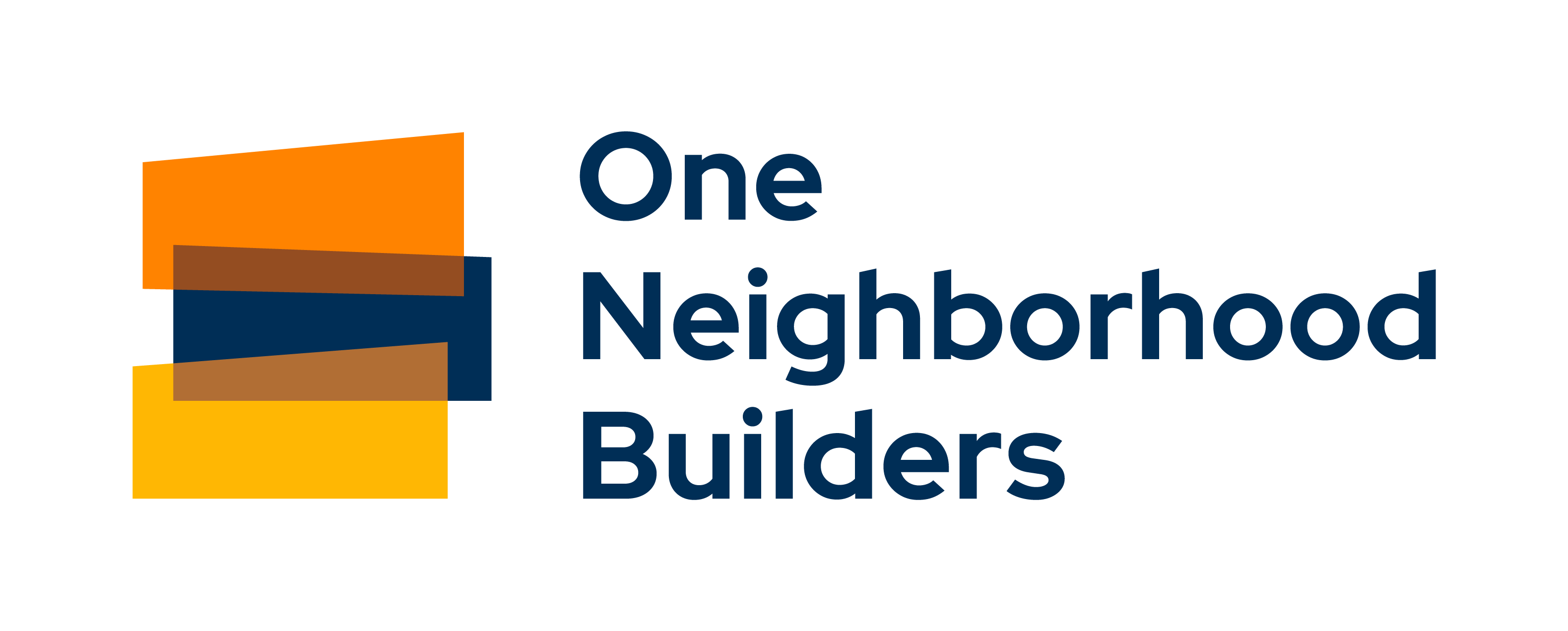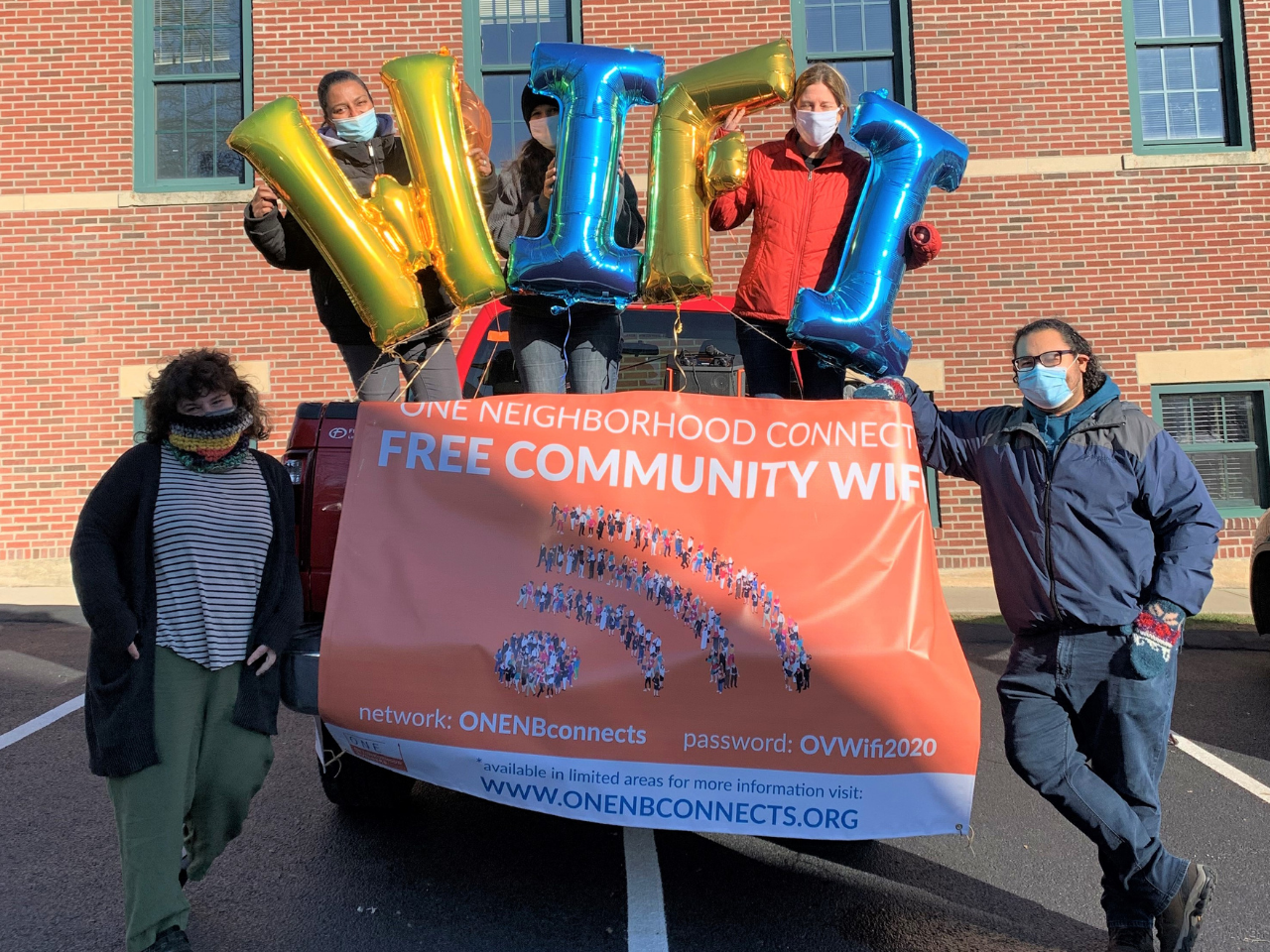Guest post by Madelyn Lazorchak, Communications Writer, NeighborWorks America
In November, just before Thanksgiving, ONE Neighborhood Builders paraded through the streets of their community with an announcement, posted on signs and shouted from the back of a truck. “Free WiFi,” they said. And then in Spanish, “Gratis WiFi.”
The announcement was for the community’s new WiFi network, providing about 3,000 households in the Olneyville neighborhood of Providence, Rhode Island, with free high-speed internet.
Almost immediately, Mirza Portillo’s sons, Diego, 8, and Dylan, 11, were using that WiFi to connect to school, where officials instituted distance learning starting last March. Portillo has a personal WiFi account through Verizon, but the supplemental free WiFi makes it easier for everyone in the family to use it at the same time.
“I’m excited for my neighbors,” Portillo says in Spanish to Antonio Rodriguez, assistant director of asset management at ONE Neighborhood Builders, who translates. “This could really help them.”
While Portillo’s husband saw his work hours reduced, their standard of living hasn’t declined too much during the pandemic. But Portillo says that others in her community had to make many cuts to their budgets. And internet is almost impossible to cut.
It took only days for the staff at ONE Neighborhood Builders to realize how much the pandemic was worsening the digital divide. As schools closed and residents sheltered in place, the internet became the bridge to work, to school, to communicating with friends and family, to healthcare – even to shopping. And there were residents in Rhode Island communities who didn’t have access.
In April, Jennifer Hawkins, executive director of ONE Neighborhood Builders, began looking for ways to provide internet access to the residents who needed it. A grant from NeighborWorks America‘s Critical Relief Fund, in partnership with the Wells Fargo Foundation, provided initial funding. Other contributors followed as ONE Neighborhood Builders hired engineers to help design and set up a mesh network. “It was early money,” Hawkins says of the grant. “It created a sense of momentum.”
And they needed that momentum. Before the mesh network, the Olneyville neighborhood had the lowest number of residents with home internet in the state, Hawkins says. In Providence, 83% of residents have Internet; in the Olneyville neighborhood, the average had been between 62% and 68%.
“Some of our residents have it, but they’re struggling to afford to pay for it,” Hawkins says. “And there are those who don’t have it all. We’re trying to bridge the divide for those who currently lack it.”
“Access to the internet is a gamechanger,” she says. “It’s now an essential public utility.”
“It is a critical basic need that should be provided to all individuals and families across the city and state of Rhode Island,” agreed Rodriguez, adding that it has been an honor to help make the digital divide that much smaller.
Portillo says it’s much easier to connect to the internet now. As she speaks, Diego uses the community WiFi to send in a packet of homework for school.
How does she feel about the new program? “Bueno, Bueno,” she says. “I’m really happy ONE Neighborhood Builders decided to invest money in the community and in the WiFi. The pandemic changed people’s lives in ways they hadn’t thought. Being home all the time, the kids get a little down. They are depressed not to go out and see their friends.” She says the free WiFi allows them to play games and connect. “They can distract themselves, even if it’s just for a little bit during this time of uncertainty.”
ONE Neighborhood Builders also received a grant from NeighborWorks’ Rental Resilience Fund, with assistance from the Wells Fargo Foundation. Hawkins says that money is going to help condominium owners who have fallen into arrears. And the grant is helping tenants in apartments with back rental fees.
“The community has been exceptionally hard hit,” Hawkins says. The zip code where ONE Neighborhood Builders is located – 02909 – has the highest number of COVID-19 cases in the state. “There’s overcrowded housing and a lot of individuals don’t have the luxury of working home. There’s a lack of car ownership so there’s carpooling. Poverty correlates to chronic disease and chronic disease means there’s more susceptibility of having COVID.”
Like others NeighborWorks organizations, ONE Neighborhood Builders expanded and enhanced its resident services during the pandemic to bring residents what they needed, including food.
“We have expanded our Community Health Worker registered apprenticeship program from Four community health workers to now 12,” she says. “These local residents are receiving free education at Rhode Island College and earning a competitive wage. At the same time, the community health workers are helping residents with urgently needed quarantine and isolation support.”
In spite of struggles this year, ONE Neighborhood Builders received a boost in December with an $8 million grant for a program focusing on economic mobility for two Providence zip codes – 02908 and 02909. “It’s a unique initiative,” Hawkins says. “We’re in the launching stage.” ONE Neighborhood Builders will lead the project, which will also involve the state and the Rhode Island Foundation. The program will address health disparities through policy reform and systems change. The hope is that the model can be implemented across the state.
“Through many years of working side by side, a genuine spirit of collaboration and shared vision has been cultivated among residents and community partners,” Hawkins says. “COVID-19 has tested our resilience and strengthened our commitment to enduring and equitable improvements. I could not be more optimistic about the initiative’s potential to increase affordable housing, support local business development and improve leading indicators leading to 3rd grade reading.”
COVID-19 has tested the resilience of NeighborWorks organizations and the communities they serve. But those organizations have found innovative ways to help move their communities forward.
Further reading:
Brookings discusses the role of broadband in delivering health and equity to all communities.
In Colorado, Rocky Mountain Communities used a grant from NeighborWorks to assess what digital tools residents were using.
Originally posted on February 4, 2021 by NeighborWorks America


